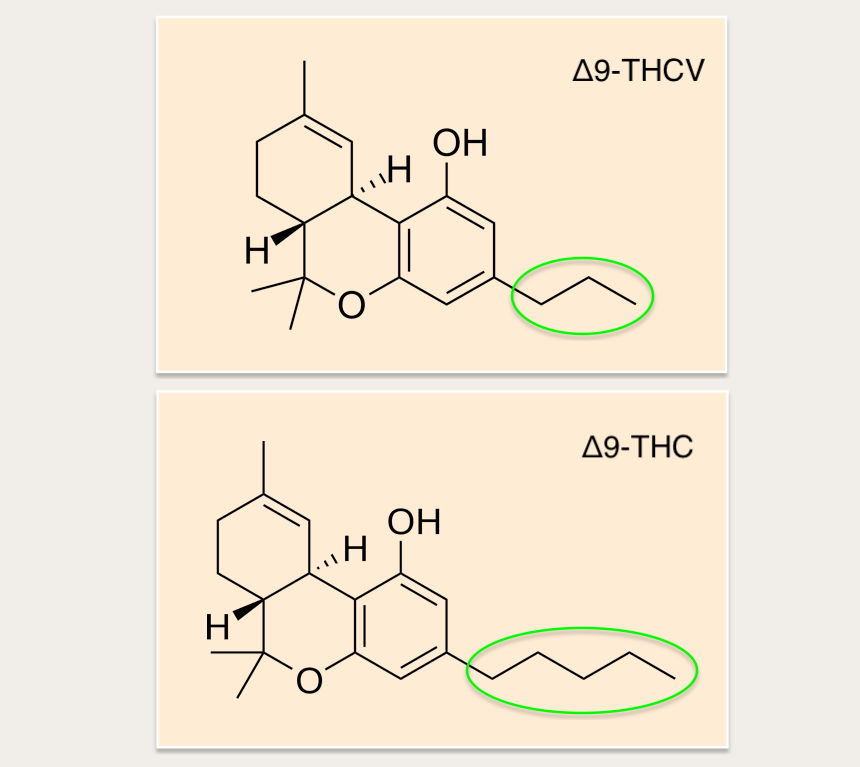Tetrahydrocannabivarin (THCV) is a cannabinoid substance found in marijuana and hemp plants. It's chemically similar to tetrahydrocannabinol (THC) however with some essential distinctions. Here's everything you require to know about THCV including the threats, advantages, differences, and similarities with other forms of THC and more. What Is THCV? THCV is a less common cannabinoid discovered in some stress of cannabis, specifically African sativa.
 What is THCV? Cannabis Glossary Leafly
What is THCV? Cannabis Glossary Leafly
 What is THCV? Understanding “Diet Weed” - Elevate Holistics
What is THCV? Understanding “Diet Weed” - Elevate Holistics
 What is THCV and what are the benefits of this cannabinoid? Leafly
What is THCV and what are the benefits of this cannabinoid? Leafly
THCV has a 3-carbon side chain rather than THC's 5-carbon side chain. This difference is subtle, however it has an obvious effect on the impact profile. THCV is rather psychedelic but just about and about. What Does THCV Seem like? THCV has a strong energy-boosting part to it, that makes it especially popular amongst students and professional athletes.
In the United States, THCV policy is nuanced. THCV is not an Arrange I Drug, but marijuana extracts are making it rather unclear what the federal position is on THCV. The 2018 Farm Costs specifies that hemp plants and all derivatives of the plants are legal on a federal level, so numerous companies abide by this law and still offer THCV to clients by just drawing out the substance from hemp plants.
If THCV is considered a THC analog, it might be controlled in the future by the exact same rules as THC under the Federal Analog Act. This act states that any substance that shares a similar molecular profile as a known prohibited substance it's consisted of in the same drug Arrange classification.
What Are the Effects of THCV? Proponents of THCV report that it produces an intense burst of energy and makes them feel blissful without the psychological cloudiness triggered by THC. The results are extremely mild compared to THC. The effects are almost solely cognitive yet in some way have really little impact on headspace.
2. THCV & Cravings Some THCV users declare that it curbs their appetite. This is a common result of other focus-enhancing compounds. It's as though THCV gets rid of the diversion of other physical processes (like cravings) in order to preserve resources and attention to cognitive jobs instead. How Does THCV Work? Cannabinoids produce biological impacts in the body by interacting with endocannabinoid receptors.
CB1 receptors are located in the worried system and communicate with neurotransmitters in the brain to produce mind-altering results. Interaction with CB1 websites is what offers some cannabinoids like THC their psychoactivity. THCV is a bit challenging to understand due to the fact that it's primarily a CB1 villain, indicating it has the opposite impact as THC.
While scientists are still seeking to comprehend this procedure, it appears THCV is able to obstruct the effects of CB1 in low doses and stimulate them in high doses. CB2 receptors are found primarily in the immune system. THCV is a partial agonist of CB2, however the impacts of this partial activity aren't widely known, and it apparently has no discernible effect on THCV users' experience.
As pointed out in the previous area, THCV is a CB1 antagonist in low dosages which is the exact opposite impact of delta 8 and delta 9 THC. This could mean that THCV combats a few of the psychedelic impacts of THC. This result might explain why individuals who utilize THCV feel so clear-headed especially compared to the infamous "fogginess" induced by delta 9 THC.